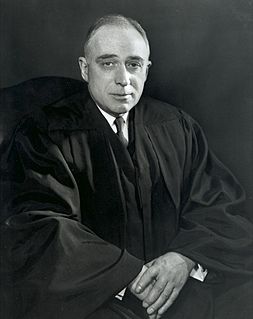A Quote by James Madison
Rulers who wished to subvert the public liberty, may have found an established Clergy convenient auxiliaries. A just Government instituted to secure & perpetuate it needs them not.
Quote Topics
Related Quotes
In any society, order is the first need of all. Liberty and justice may be established only after order is tolerably secure. But the libertarians give primacy to an abstract liberty. Conservatives, knowing that "liberty inheres in some sensible object," are aware that true freedom can be found only within the framework of a social order, such as the constitutional order of these United States. In exalting an absolute and indefinable "liberty" at the expense of order, the libertarians imperil the very freedoms they praise.
Is there no virtue among us? If there be not, we are in a wretched situation. No theoretical checks-no form of government can render us secure. To suppose that any form of government will secure liberty or happiness without any virtue in the people, is a chimerical idea, if there be sufficient virtue and intelligence in the community, it will be exercised in the selection of these men. So that we do not depend on their virtue, or put confidence in our rulers, but in the people who are to choose them.
[A] republic . . . [is] a government, in which the property of the public, or people, and of every one of them was secure and protected by law . . . implies liberty; because property cannot be secured unless the man be at liberty to acquire, use or part with it, at his discretion, and unless he have his personal liberty of life and limb, motion and rest, for that purpose.
Perhaps it will be found that to obtain a just republic (and it is to secure our just rights that we resort to government at all) it must be so extensive as that local egoisms may never reach its greater part; that on every particular question, a majority may be found in its councils free from particular interests, and giving, therefore, an uniform prevalence to the principles of justice.
If the believers in liberty wish the principles of liberty taught, let them never intrust that instruction to any government; for the nature of government is to become a thing apart, an institution existing for its own sake, preying upon the people, and teaching whatever will tend to keep it secure in its seat.
The dissemination of the individual's opinions on matters of public interest is for us, in the historic words of the Declaration of Independence, an 'unalienable right' that 'governments are instituted among men to secure.' History shows us that the Founders were not always convinced that unlimited discussion of public issues would be 'for the benefit of all of us' but that they firmly adhered to the proposition that the 'true liberty of the press' permitted 'every man to publish his opinion'.
Public virtue cannot exist in a nation without private, and public virtue is the only foundation of republics. There must be a positive passion for the public good, the public interest, honour, power and glory, established in the minds of the people, or there can be no republican government, nor any real liberty: and this public passion must be superiour to all private passions.
[A]ll power is originally vested in, and consequently derived from, the people. That government is instituted and ought to be exercised for the benefit of the people; which consists in the enjoyment of life and liberty and the right of acquiring property, and generally of pursuing and obtaining happiness and safety. That the people have an indubitable, unalienable, and indefeasible right to reform or change their government whenever it be found adverse or inadequate to the purpose of its institution.
A people may prefer a free government, but if by momentary discouragement or temporary panic, or a fit of enthusiasm for an individual, they can be induced to lay their liberties at the feet of even a great man, or trust him with powers to subvert their institutions, in all these cases they are unfit for liberty.
Government is, or ought to be instituted for the common benefit, protection, and security of the people, nation, or community... when any government shall be found inadequate or contrary to these purposes, a majority of the community hath an indubitable, inalienable, and indefeasible right to reform, alter, or abolish it, in such manner as shall be judged most conducive to the public weal.



























